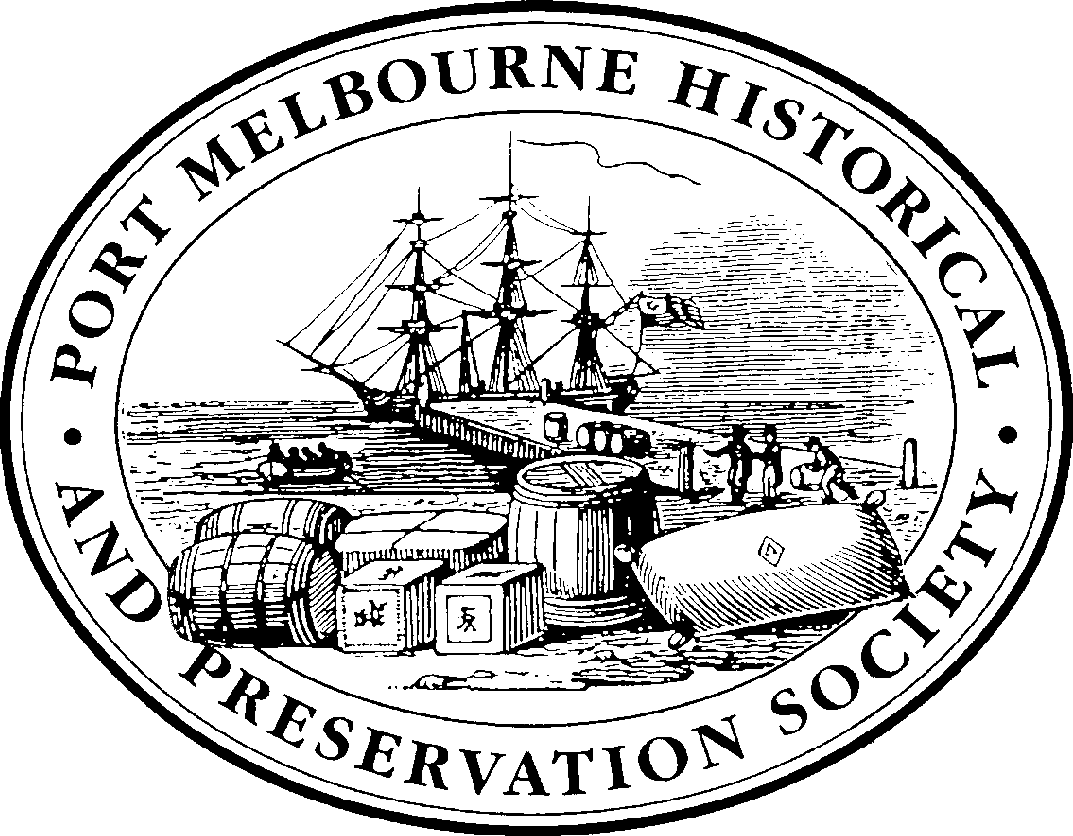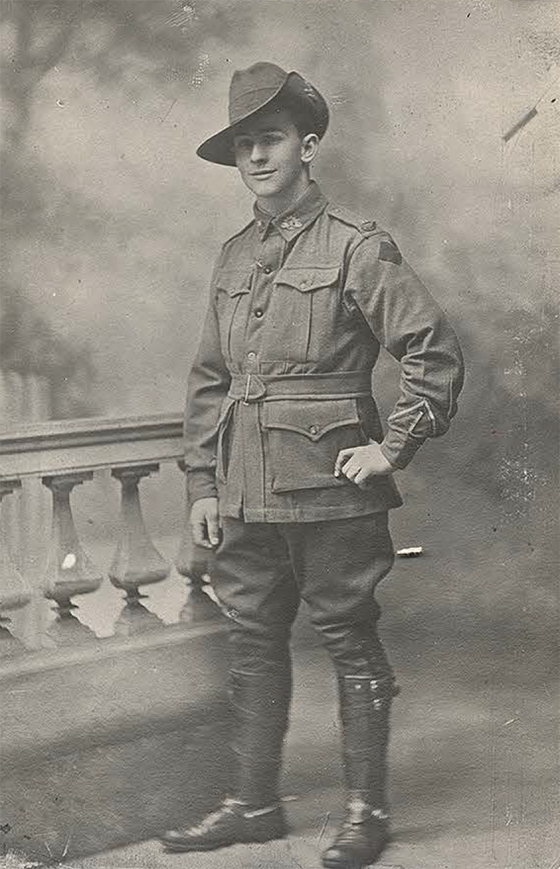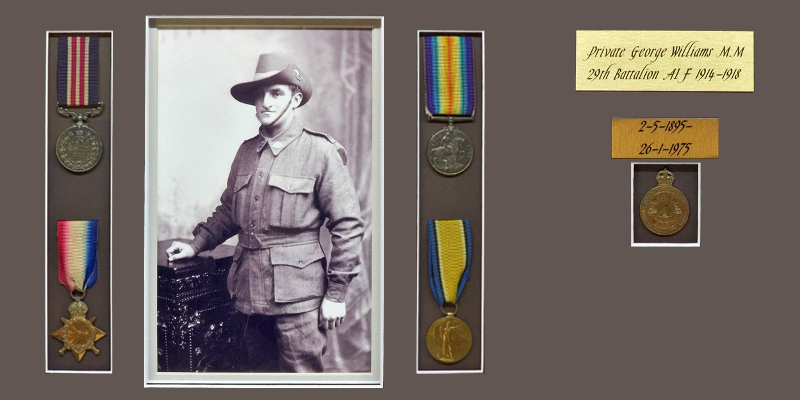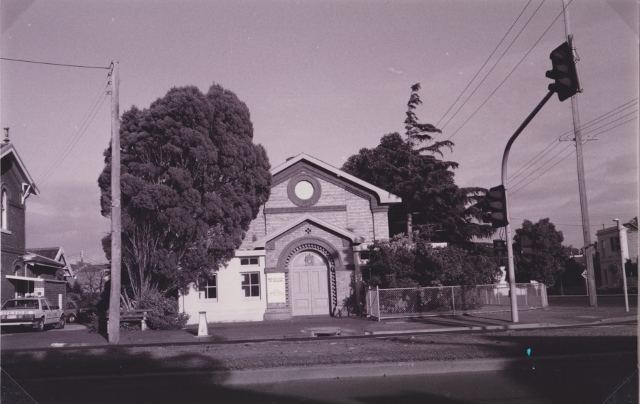Well Represented at the Front
Our First World War Centenary project has uncovered many incredible stories of Port men volunteering for active service such as this one from The Standard newspaper on 15 May 1915.
The first part of the article talks about four cousins, all born in Port Melbourne, who were serving at the Front. William Thomas Henry Prest, Thomas Alfred Prest, Henry Thomas Prest and William Thomas Libbis (known as Bill). They were the grandsons of William Prest, an ex-Engine Driver from Graham St.
Before the end of July 1915 a fifth cousin, Bill’s brother Leslie Fookes Libbis, had also enlisted. He too was born in Port.
The remainder of the article mentions three sons of Mr Hill, a dentist of Bay St. Alfred Wallace Hill, Roland Edward Alix Hill and Charles Edgar George Hill. A fourth son, Horace John Cedric Hill, also signed up in October 1917.
But lets learn bit more about those five Prest/Libbis cousins.
William Thomas Henry Prest was the first to enlist on 17 August 1914, a labourer aged 19 years 3 months and 5ft 10in tall. His father, also called William, was an Inspector of Rabbits living on Fishermen’s Bend (later at 367 Graham St). Assigned to the 5th Infantry Battalion, young William suffered a gun shot wound to the foot in May 1915 at Gallipoli and was wounded again in August and evacuated to hospital at Lemnos. In November 1915 he was promoted to Corporal but was wounded again in July 1916, this time in France. Still in France in 1917 he was sick and was admitted to hospital on more than one occasion. William left England to return to Australia in December 1918 and was eventually discharged in March 1919.
Thomas Alfred Prest, a driver aged 22 years 11 months 5ft 8¾in tall was next to enlist on 14 September 1914. His father John was also living on Fishermen’s Bend but Thomas gave his address as 386 Graham St. Thomas served in the 4th Field Ambulance and was reported as AWOL on 13 May 1916 from 6.30am until he was arrested in Cario at 2.15pm that afternoon. He was wounded in France in May 1917 and suffered several illness forcing him to hospital a couple of times during 1917 and 1918. Thomas sailed for Australia in October 1918 and was discharged in February 1919.
Henry Thomas Prest, an engine cleaner aged 19 years 6 months and 5ft 8in tall enlisted on 26 October 1914. His father, Robert Henry, was living at 155 Nott St. At the time of his enlistment, Henry, had served in the 52nd Infantry with the Citizen Forces for two years. He was assigned to the 2nd Reinforcements for the 5th Infantry Battalion but sometime between 25 April and 4 May 1915 he was wounded at Gallipoli and evacuated to Malta before being transferred to the military hospital at Lewisham in London. Although he returned to training in England, by May 1916, Thomas was on his way back to Australia on the HMAT Themistocles suffering from deafness arriving in Melbourne on 19 June 1916.
William Thomas Libbis (Bill), a salesman aged 21 years 2 months and 5ft 8¼in tall enlisted on 29 January 1915. His brother, Leslie Fookes Libbis, enlisted on 24 July 1915, a collar cutter aged 19 years 11 months and 5ft 2½in tall. Although both born in Port, they enlisted from 24 Nelson St, Coburg. Their mother, Sarah Ann Prest, had married William Edward Libbis and after both boys were born, the young family found themselves living in Coburg.
Bill and Leslie attended Coburg State School and are commemorated on page 46 of the school Soldiers’ Book which has been digitised by the Coburg Historical Society.

Prior to the family moving to Nelson St, Bill helped established the Mayfield St Football Team, named after the street where he lived. He has been identified as the player 6th from the left in the middle row in this picture of the team from around 1909 or 1910.
Bill was assigned to the 6th Infantry Battalion and took part in the landings at Gallipoli but was reported missing on 7 August 1915. Sadly, he was pronounced Killed in Action at Gallipoli as of that date by a Court of Enquiry held on 24 April 1916.
Leslie, prior to his enlistment, served for two years in the Senior Cadets of the Citizen Forces. He embarked for France in January 1916 as part of the 9th Reinforcements for the 6th Field Ambulance. However, in September 1916, Leslie was invalided to England with a gun shot wound to his right shoulder resulting in a severe fracture of the scapula. By mid 1917, he was assigned to temporary duty to several units in England awaiting transport back to Australia which subsequently departed on 22 July 1917. He was discharged on Christmas Eve 1917.
Leslie also enlisted for Second World War on 16 April 1940, aged 44 years, a clerk, living at 337 Beach Rd, Parkdale and married to Edith Grace Libbis.
References
1915 ‘Well Represented at Front.’, Port Melbourne Standard (Vic. : 1914 – 1920), 15 May, p. 2. , viewed 21 Jul 2016, http://nla.gov.au/nla.news-article91165872
National Archives Australia, Army – World War I: 1914–18 Service Records, viewed 21 Jul 2016,
http://www.naa.gov.au/collection/explore/defence/service-records/army-wwi.aspx
Fighting the Kaiser: Coburg and the First World War, Mayfield Street Football Team, viewed 21 Jul 2016, http://fightingthekaiser.blogspot.com.au/2016/03/mayfield-street-football-team.html
Coburg Historical Society, Coburg State School Soldiers’ Book, viewed 21 Jul 2016, http://moreland.hosting.libero.com.au/documents/Soldiers’-Record-Book.pdf








3 Comments
David Doughty
He answer the call in World War One
When I was a young child at state school, in the early 1960’s, Remembrance Day was always a very special time, when we school children would sit in the class room during that week listening to the stories on ABC radio about our Anzac heroes. When I was eight years old, our headmaster asked us children if we had a relative that died in World War One. I went home and spoke to my father, and he told me that his uncle Albert Doughty was killed in Gallipoli. The next day I told my headmaster my story and I was chosen together with a young girl, to carry and lay the school’s wreath at the Melbourne Shrine of Remembrance that year. It turned out that the young girl was my second cousin Lesley Adamson, and she was representing the very same uncle.
The stories that we were told at school about the Gallipoli campaign in those early days, were missing the harrowing accounts that added substance to the real horrors faced by the Anzacs, as they all headed for the beach in their boats, and the hardships they endured while they were fighting their way up the steep inclines against appalling odds. It was only when I became a young adult that I interviewed my remaining relatives, and I put together a sketchy story of what really happened to my poor unfortunate uncle Albert Percy Doughty.
Albert Percy Doughty was the eldest of six children to Henry Richard Doughty and his wife Annie. Henry walked out on his wife and his family in 1902. Annie Doughty, now a single mother of six young children, left her home in Ballarat, and she moved her young family to South Melbourne to be close to her relatives there.
Most of the family history is lost in the past now, but I did learn that Albert Percy Doughty had obtained employment as a labourer on Station Pier in the Port of Melbourne. I found an article from the Melbourne Argus newspaper, published in 1912, that reported a story of Albert Percy Doughty assaulting another man, by punching him and breaking his nose. It was reported that Albert was waiting to catch a cable tram, when he witnessed a young lady who was running along the street screaming and crying. Albert approached her and she told him that a man was following her and she was frightened. Albert immediately confronted the man and punched him in the face, breaking his nose. Albert was interviewed by the police and he was arrested, and charged with assault, and he was fined.
When Albert enlisted into the army in 1914, his mother Annie told him that it was important to her that he had to go to church before his overseas adventure. Albert, his sister Jessie and his mother Annie, attended a service at St Pauls Cathedral in Melbourne. Albert had never been there before and he was so amazed at the beauty of the stain glass windows. While looking up at the beautiful artwork in the stain glass windows, he failed to see someone kneeling to pray in front of him, and he fell over them. One day close to Albert’s final day at home, and his journey overseas, he went to his local hotel to have a final beer with his mates and his three brothers. Two ladies began fighting outside in the street and Albert, always interested in helping damsels in distress, rushed outside to break them up. One of the ladies stuck a long pin into Albert’s thigh, causing him a great deal of pain.
Just before Albert boarded his troop ship he gave his brother-in-law Jack Paton, his treasure pocket watch to look after for him, until he returned from the war. Albert Percy Doughty was given the number 1648, as part of the Second Brigade, 6th Battalion, of the Australian Imperial Forces. Albert’s family said goodbye to him, and there were handshakes and kisses and cuddles from his family and friends, as he boarded the troop ship HMAS A54 ‘Runic’ that was bound for Egypt on the 19th of February 1915. Albert Percy Doughty was 23 years old, five foot eight inches tall, with blond hair and blue eyes and tattoos on both his forearms. His brother nicknamed him ‘Bella’ as he was from Ballarat. They would never see him again.
Albert landed at Gallipoli on the 25th of April 1915. His army record states that he was killed on the 8th of May 1915 in the Second Battle of Krithia. The Second Battle of Krithia was an attempt by the Allies to advance further on to the Helles battlefield during the Gallipoli battle and advance the position from the stalemate they were in. The village of Krithia and the neighbouring hill of Achi Baba had to be captured in order for the British to advance up the Gallipoli peninsula to the forts that controlled the passage of the Dardanelles straits. Not much ground was gained in that battle and their objective was never reached. Half the men who attacked in that action became casualties in just thirty five minutes of fighting that day. Albert’s body was never recovered. His mother received that dreaded telegram on the 15th of July 1915, many weeks after his death.
Two of Albert’s bothers, Henry and Robert, joined up and somehow through luck they fought and survived the horrors of the Western Front.
After World War One, Henry had trouble facing normal life again, and he walked away from his wife and two children. His son Jack told me, many years later, that he had never seen or heard from his father, and he didn’t even know when he died and where he was buried. I found out that Henry, an army Sergeant in the first war, had re-joined the AIF in World War Two, and he died while training soldiers in Melbourne. He was buried in an army grave in Springvale cemetery. Albert’s brother Robert, survived the first war and went on to have a normal married life with children. My great grandmother Annie Doughty never had a grave to visit, and to mourn over her beloved son Albert. The news of Albert’s death devastated her and she never did recover from her sadness until her death ten years later in 1925, when she was just fifty five years of age.
I went to Gallipoli with my wife Sue back in 2005 for the ninetieth anniversary, and as I stood facing the beach on that very cold night, I thought about my great uncle Albert, and those poor young men, fighting their way up the beach, cold and wet, in a hail of bullets, and I wept. I later thought about all the many descendants now living from Henry, Robert, their sister Jessie, and my grandfather William, and it saddens me to think of the possible descendants of Albert that never were, and all the wasted lives of all those many thousands of young men lost in war
David Thompson
Thanks for sharing your stories, David. There were many Port families that sent a whole generation of their young men to war. The official records talk about how many were physically injured and occasionally those who were affected mentally but anecdotal evidence suggests that many had difficulty adjusting to normal life again and it is a very rare family indeed that didn’t suffer any negative consequences of the First World War.
David Doughty
http://www.ddoughty.com/old-door-knocker.html Have a look on this web page at this war story about the Drysdale family, an early pioneer family who settled in Sandridge – Port Melbourne